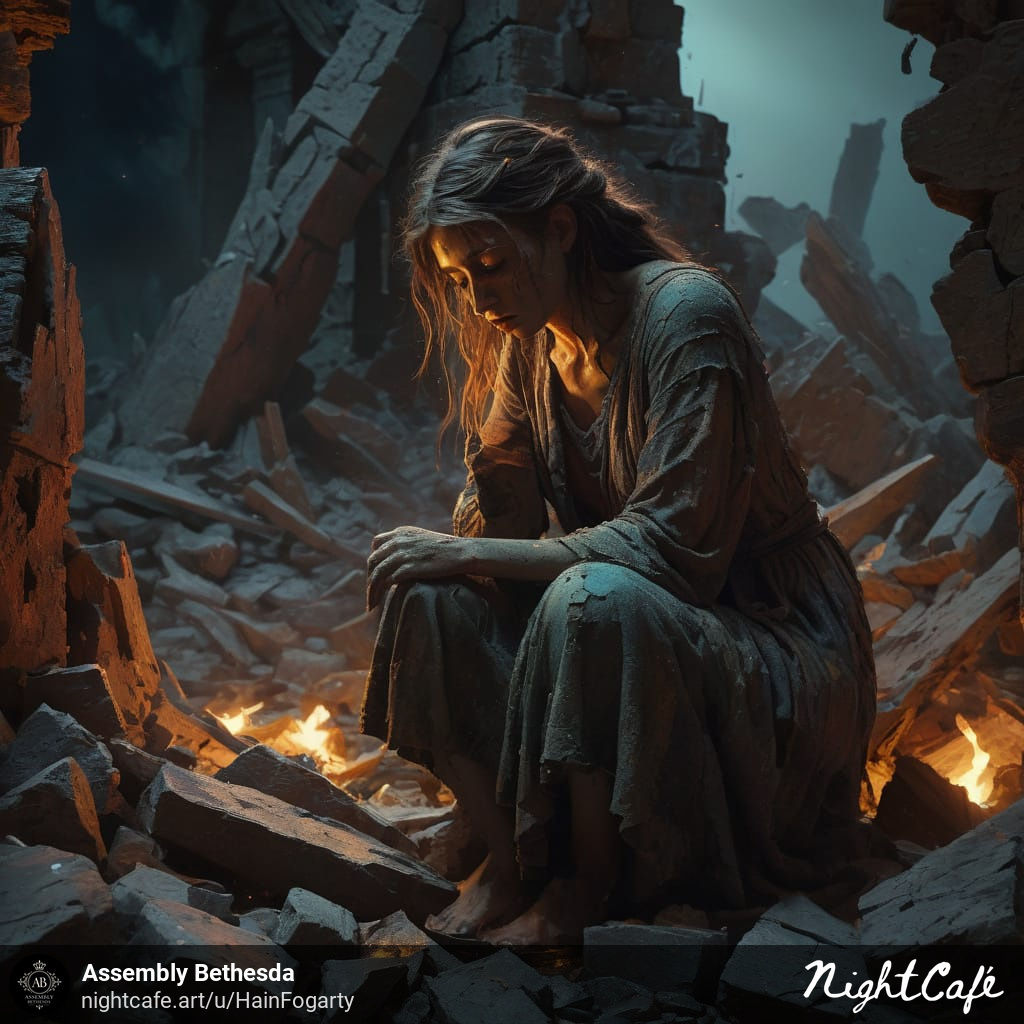The Book of Lamentations stands as a poignant cry from the heart of ancient Israel, a collection of five poetic dirges mourning the catastrophic fall of Jerusalem in 586 BCE. Attributed traditionally to the prophet Jeremiah, this biblical text captures the devastation wrought by the Babylonian invasion—a divine judgment for Israel’s repeated violations of their covenant with God. Homes razed, the Temple desecrated, and people scattered in exile; it’s a narrative of utter collapse, where prosperity and security crumble under the weight of unfaithfulness.
At the core of Lamentations lies Chapter 3, an acrostic poem that intensifies the personal dimension of this communal tragedy. Here, the prophet embodies the suffering of his people, voicing raw, unfiltered grief. “I am the man who has seen affliction under the rod of his wrath,” he declares in verse 1, painting a vivid picture of torment: driven into darkness, besieged by bitterness, and chained in despair. The sense of divine abandonment is palpable—God seems not just distant but actively hostile, “like a bear lying in wait” (verse 10), turning prayers into echoes against unyielding walls. This isn’t polite sorrow; it’s guttural, accusing, questioning the very goodness of the One who promised protection. The covenant, once a bedrock of identity and hope, feels shattered, leaving a void filled with ashes and gall.
Yet, amid this abyss, Chapter 3 pivots dramatically toward hope. In verses 21-33, the lamenter recalls, “But this I call to mind, and therefore I have hope: The steadfast love of the Lord never ceases; his mercies never come to an end.” It’s a testament to the complexity of faith—grief doesn’t negate trust but deepens it. The prophet affirms that God’s faithfulness endures, even in silence, urging patient waiting: “It is good that one should wait quietly for the salvation of the Lord.”
This ancient lament resonates profoundly in our modern world, where loss permeates both personal and societal spheres. Consider the individual shattered by a loved one’s death, a debilitating illness, or a broken relationship—these echo the prophet’s isolation and abandonment. On a larger scale, societal collapses mirror Jerusalem’s fate: wars displacing millions, pandemics ravaging communities, or economic downturns eroding stability. In places like war-torn Ukraine or post-hurricane devastated regions, people grapple with a similar sense of forsakenness, wondering where God is amid the rubble.
expressing your depression and sadness, however, offers a transformative pathway. By articulating pain honestly, without sugarcoating or rushing to resolution, we confront our brokenness, fostering healing. Expressing your pain in a constructive way builds resilience, empathy and character. In faith communities, shared mourning, like in Lamentations’ communal poems, creates solidarity, reminding us we’re not alone. Ultimately, it renews trust in God, not as a quick fix but as a steadfast presence who weeps with us. As the prophet discovers, hope emerges not despite lament but through it, inviting us to rise from ashes with deeper compassion and unwavering faith.

